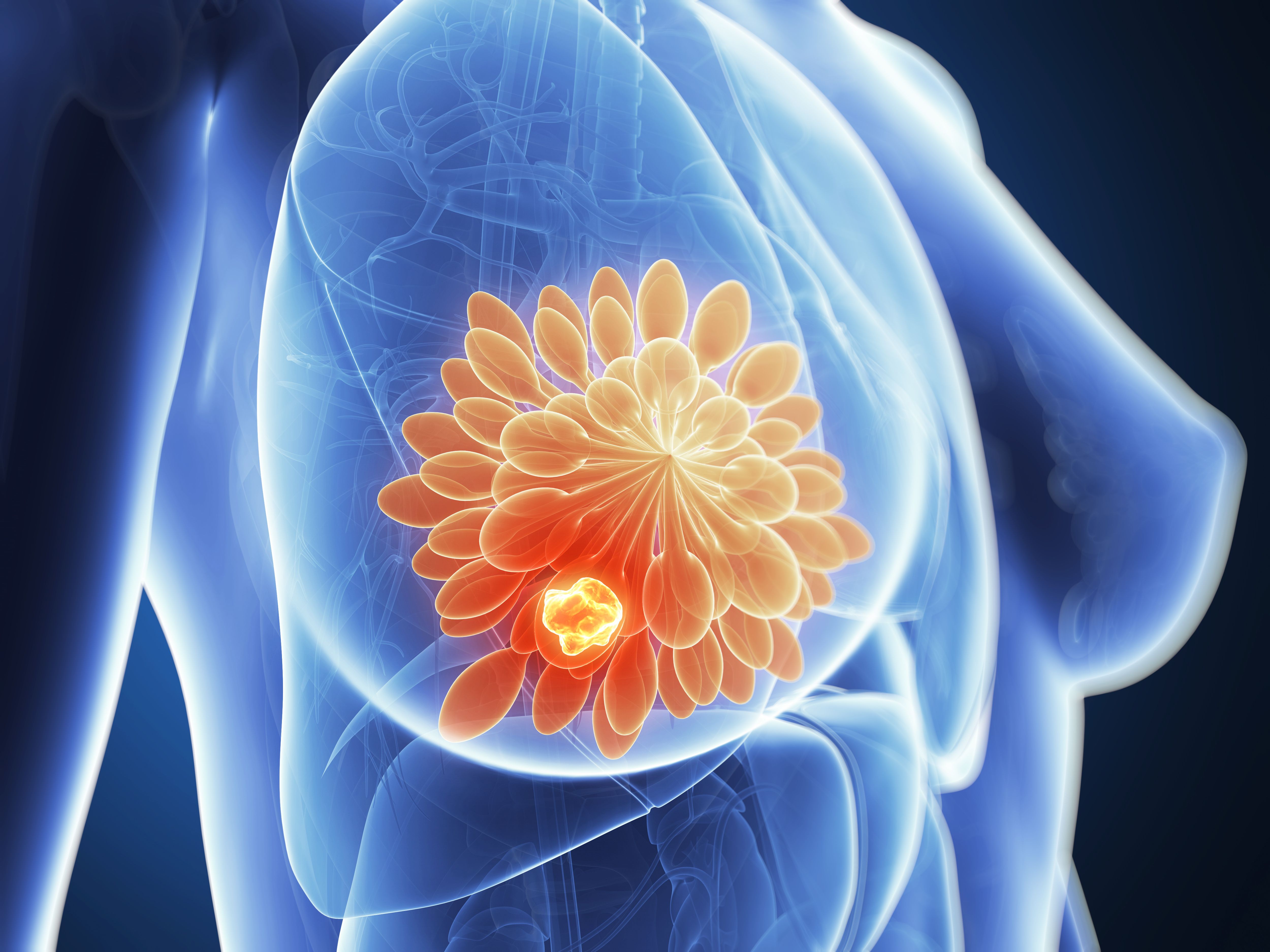News
Article
Study: Patients With PD-L1-Positive, High-Risk, ER+/HER2- Breast Cancer Can Achieve Substantial Complete Response Rates With Addition of Nivolumab
Author(s):
Key Takeaways
- Higher PD-L1 expression correlated with increased pCR and RCB 0-1 rates in the CheckMate 7FL trial.
- Nivolumab benefits were significant in patients with higher PD-L1, TIL expression, and lower ER/progesterone receptor expression.
Patients with an estrogen receptor measure greater than 8% and those with little to no TIL expression showed no benefit with the addition of nivolumab.
New findings from the CheckMate 7FL trial (NCT04109066) found that greater programmed death cell ligand 1 (PD-L1) expression was associated with higher pathological complete response (pCR) and residual cancer burden (RCB) 0-1 rates, according to investigators during a presentation at the 2023 San Antonio Breast Cancer Symposium (SABCS) in Texas.
The CheckMate 7FL study is a prospective, phase 3, randomized, multicenter, double-blind trial investigating the addition of nivolumab (Opdivo; Bristol Myers Squibb) to neoadjuvant chemotherapy and adjuvant endocrine therapy in patients with high-risk, estrogen receptor (ER)-positive, human epidermal growth factor receptor 2 (HER2)-negative primary breast cancer. The study enrolled newly diagnosed patients who were randomly assigned 1:1 to neoadjuvant chemotherapy plus nivolumab 360 mg once every 3 weeks/nivolumab 240 mg once every 2 weeks (arm A) or neoadjuvant chemotherapy plus placebo (arm B).
The study enrolled newly diagnosed patients who were randomly assigned 1:1 to neoadjuvant chemotherapy plus nivolumab 360 mg once every 3 weeks/nivolumab 240 mg once every 2 weeks (arm A) or neoadjuvant chemotherapy plus placebo (arm B). Image Credit: © SciePro - stock.adobe.com

A total of 830 patients were screened, 521 were randomized, and 517 were treated. The primary efficacy population (N = 510) included all randomized patients but excluded 11 patients from Russian sites with insufficient follow-up. A total of 510 and 349 patients (68.4% of the modified intention-to-treat [ITT] population) were evaluated by PD-L1 SP142 and 28-8 combined positive score (CPS) assays, respectively. PD-L1 positivity was balanced in both arms (52% in arm A and 50% in arm B had CPS ³1; 19% vs 16% had CPS ³10; and 11% vs 9% had CPS ³20, respectively).
According to the findings, the addition of nivolumab was more significant in patients who had tumors with increasing PD-L1 expression, with an unweighted pCR rate of 16.6% in CPS 1 or greater, 32.4% in CPS 10 or greater, and 52.3% in CPS 20 or greater. In comparison, the unweighted pCR rate was 10.7% in the modified ITT population and 5.7% in patients with CPS less than 1.
The unweighted rate differences between arms A and B for RCB 0-1 were similar, at 17% in CPS 1 or greater, 34.4% in CPS 10 or greater, and 52.3% in CPS 20 or greater. In contrast, the unweighted RCB 0-1 rate was 9.4% in the modified ITT population and 3.3% among patients with CPS less than 1.
Presenter Shirene Loi, MD, PhD, said the benefit of nivolumab was also highest in patients with tumor-infiltrating lymphocytes (TIL) expression 5% or greater, with ER expression 50% or less, and/or with progesterone receptor expression 10% or less, in ER 10% or greater. Notably, increased pCR was observed with any TIL expression greater than 1%. Loi added that no association was seen between nivolumab benefit and Ki67.
During the discussion, one attendee asked which patients Loi would recommend not be given nivolumab. Based on the results of the CheckMate 7FL study, she said patients with an ER greater than roughly 8% or 10% and patients with little or no TIL expression have been found to show no benefit with nivolumab.
Loi noted that further exploratory and correlative analyses are being conducted to refine the patient subpopulation with primary ER-positive, HER2-negative breast cancer who could benefit from adding nivolumab to neoadjuvant chemotherapy.
Reference
Loi S. Biomarker results in high-risk ER-positive, HER2-negative primary breast cancer following neoadjuvant chemotherapy with or without nivolumab: exploratory analysis of CheckMate 7 FL. Presented at: San Antonio Breast Cancer Symposium. December 5-9, 2023.
Newsletter
Stay informed on drug updates, treatment guidelines, and pharmacy practice trends—subscribe to Pharmacy Times for weekly clinical insights.






